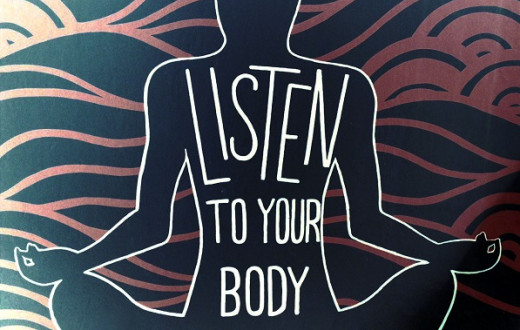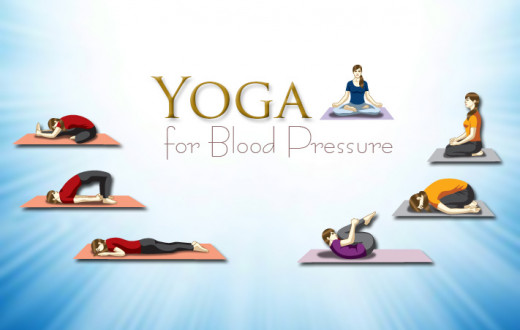By Nikita Singh┃Posted: January 07, 2019
There is one internal state which, if recognized and dealt with, can drastically reduce stress and improve mental well-being – compassion for yourself.
A couple of months ago, I moved out of my talent and leadership consulting job to pursue my passion in supporting people, specifically employees & leaders in organizations, to cultivate ‘well-being’ in their lives. As I write this piece, I have a lot of exciting things happening – my business model coming to life, a website, exciting meetings, partnerships, etc.
Given this vision of making well-being ‘a need to have’ across organizations, I’ve been doing a lot of research on stress and stressors both within and outside of the workplace. I realize that the one mistake a lot of us tend to make is to describe our stressors as stress. However, stress is really our response to stressors and not the stressor in itself.
Lack of self-compassion: an internal stressor
I’m now engaged in one-on-one wellness coaching with clients, as well as making changes to my lifestyle to take care of my own well-being. Through this, I’ve discovered that many people lack self-compassion, which can be an effective mitigator of ‘internal stressors.’ Self-compassion is extending compassion to one’s self in instances of perceived inadequacy, failure, or general suffering.
I’ve heard successful people say, “I did this, but it’s just not enough. I can do better.” I’ve heard intelligent working millennials say, “I should’ve acquired XYZ qualification earlier.” I’ve struggled, and am still struggling with letting myself make mistakes and taking some extra time to build this new venture. At least once a day, I have thoughts like, “But why did I think I could make it work?” or, “Is this a stupid idea?” or, “Do I REALLY have it in me?”
Perhaps, our society’s emphasis on achievement, self-esteem, power, and fame lies at the heart of this unnecessary and counterproductive suffering.
This made me realize that all of us, right from young students to CXOs/CEOs, have multiple stressors in our ecosystem. However, a complete lack of self-compassion very often may compound the impact of these stressors!
Two misguided subconscious beliefs
Below are two unconscious/subconscious beliefs about self-compassion, which may be blocking us from making it integral to our lives:
1. Self-compassion will make me complacent and slow.
Dr. Kristin Neff, a pioneer researcher in self-compassion, explains that self-compassion isn’t a way of avoiding goals or becoming self-indulgent. It’s important to note that self-compassion doesn’t mean giving yourself whatever you want. Rather, it’s concerned with the alleviation of suffering. In fact, often self-compassion helps us care for ourselves, such that we develop the intrinsic motivation to do things that will benefit us in the long-term.
Dr. Neff explains that self-compassion can initially be painful, because it involves making life changes that may not seem aligned with our ‘self-image.’ I resonate with this so much! In the last two months, I’ve begun to spend much more time/energy focusing on my health, on volunteering and service, and on investing in relationships. For someone who has been a workaholic, this has been both tough and rewarding. Often, when spending the extra 20 minutes on my meditation, or at the gym, I worry, ‘Am I being complacent? Don't I have so much work to finish?’ However, it’s at these moments when my vision of well-being and self-compassion kick in.
My greatest learning is that self-compassion is much more powerful than self-esteem. In fact, practicing self-compassion has helped me feel calm, centered, and become more productive. YES, despite spending fewer hours working, I’m more productive.
A workplace where self-compassion is valued can actually be one where individuals feel a high sense of psychological safety, and will collaborate with each other to establish good relationships almost effortlessly!
2. Self-compassion won’t allow me to make the changes I need to succeed.
Each time I practice self-compassion or suggest this practice to someone, I fear, “Does this mean I won’t act on criticism?” or, “Does this mean I won’t make changes if I make mistakes?” or, “How can I succeed without being self-critical?” Many of us associate being self-critical with being successful. We are deeply attached to self-criticism, and at some level, we probably think pain is helpful. To the extent that self-criticism does work as a motivator, it’s because we are driven by the desire to avoid self-judgment when we fail.
However, with self-compassion, we strive to achieve for a very different reason – because we care. And because self-compassion gives us the safety needed to acknowledge our weaknesses, we’ll be in a better position to change them for the better. Dr. Neff also explains that with self-compassion we remain upbeat and energetic, avoiding the drain that may result from self-defeating thoughts.
Imagine a workplace where individuals and leaders actually practice self-compassion. Not only would it lead to better self-management and lower stress levels, but also less fear of failure. As a consequence, they may be more open to innovation and new ideas!
This is all grounded in science and the physiology of our body. When we’re harsh on ourselves, it activates the sympathetic nervous system (fight or flight) and elevates the stress hormones like cortisol in our bloodstream, with long-term implications for our health and happiness. Self-compassion, on the other hand, triggers the mammalian caregiving system, and hormones of affiliation, such as oxytocin. Oxytocin is associated with a feeling of high well-being, which allows us to hold the truth without attacking ourselves.
So, let’s ask ourselves “If my best friend or family member was going through my situation, what would I do or say?”
Let’s create happy and more productive work environments for our teams and colleagues by helping them cultivate self-compassion. It may seem challenging initially, but in the long-run, you’ll emerge a winner!
This article was originally published by Thrive Global Community and is re-posted here with the author’s permission.
Nikita Singh, an organizational psychologist, a certified health & wellness coach and a leadership consultant, and the founder of The Human Prism, has worked internationally in diverse industries with a keen interest in holistic, individual development.






















